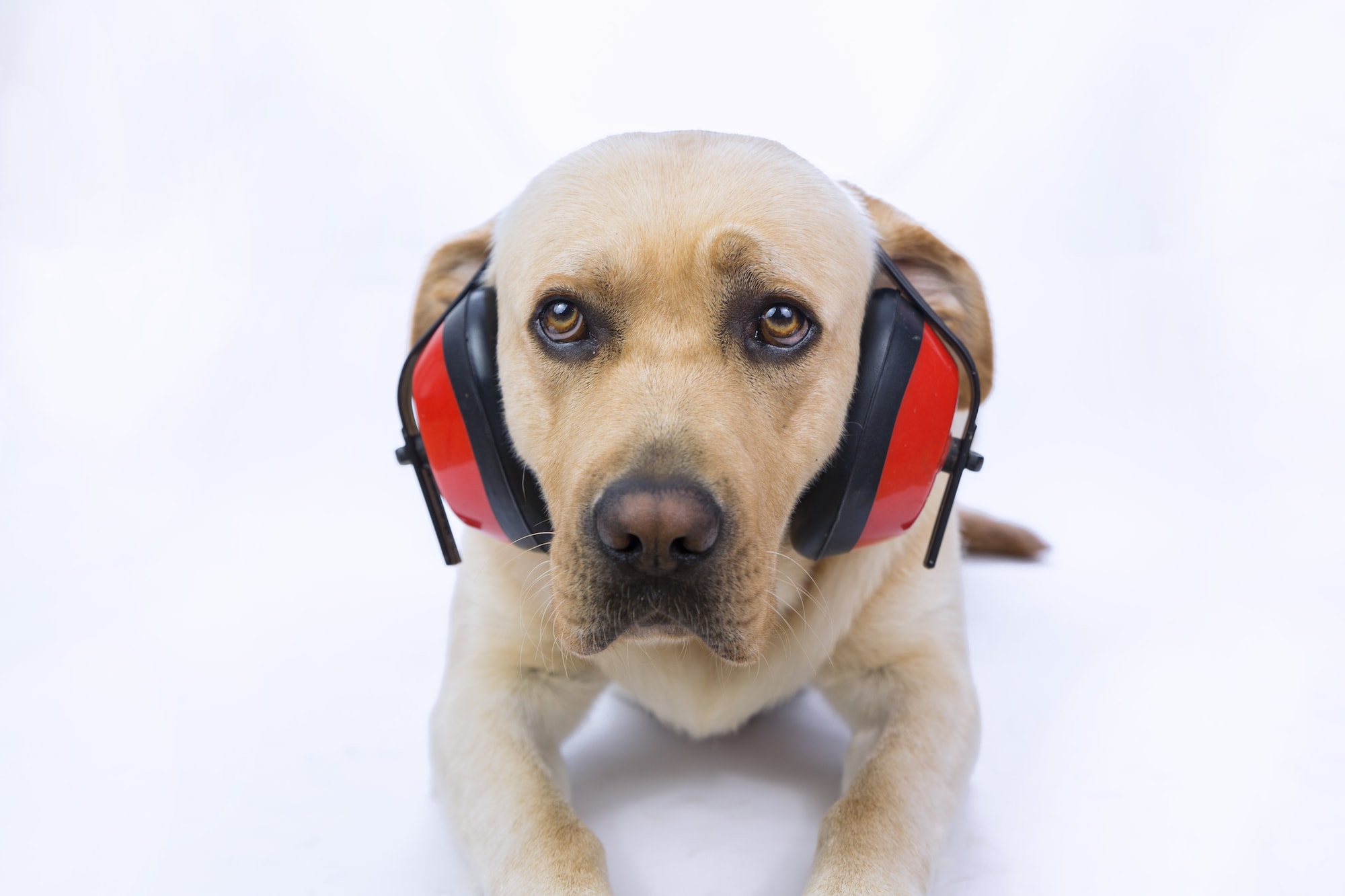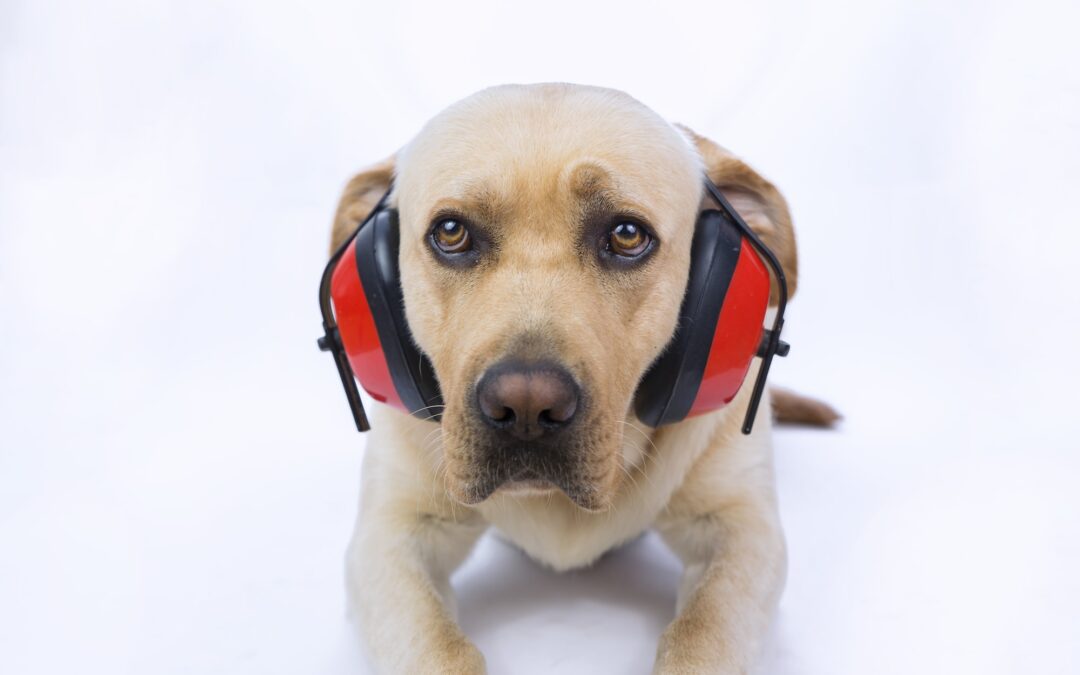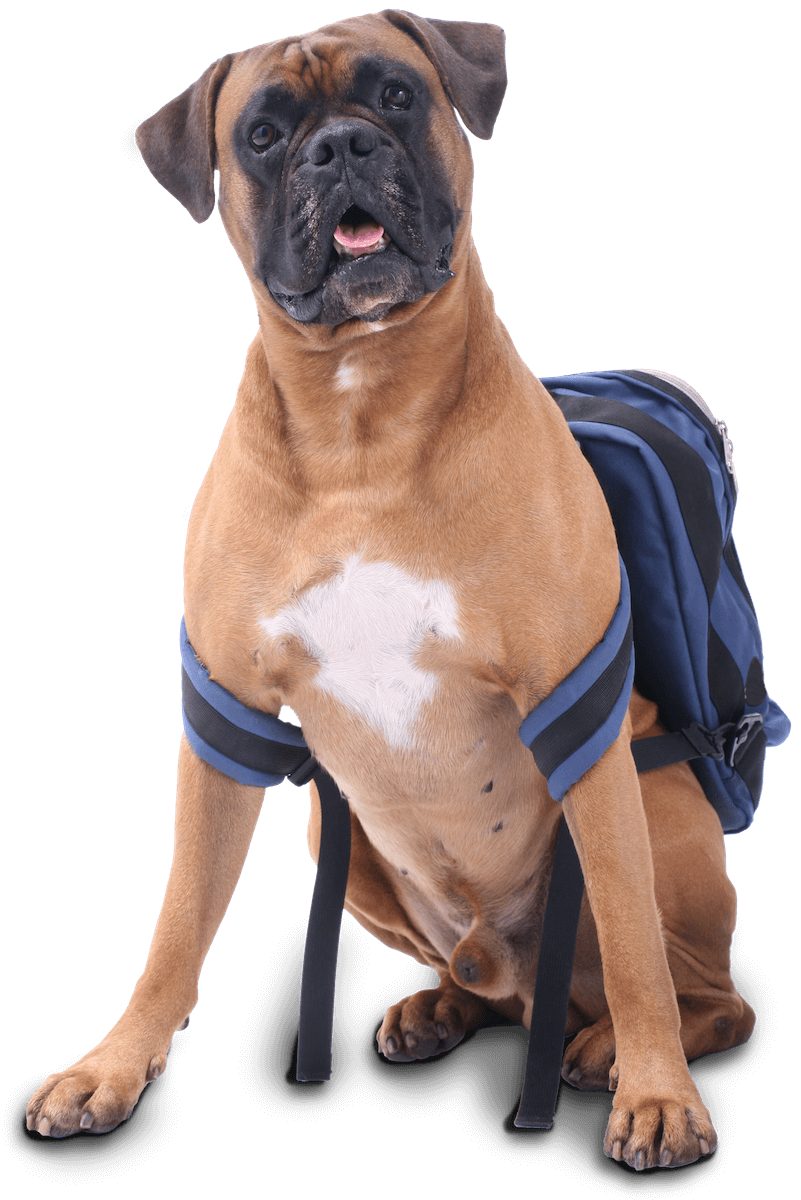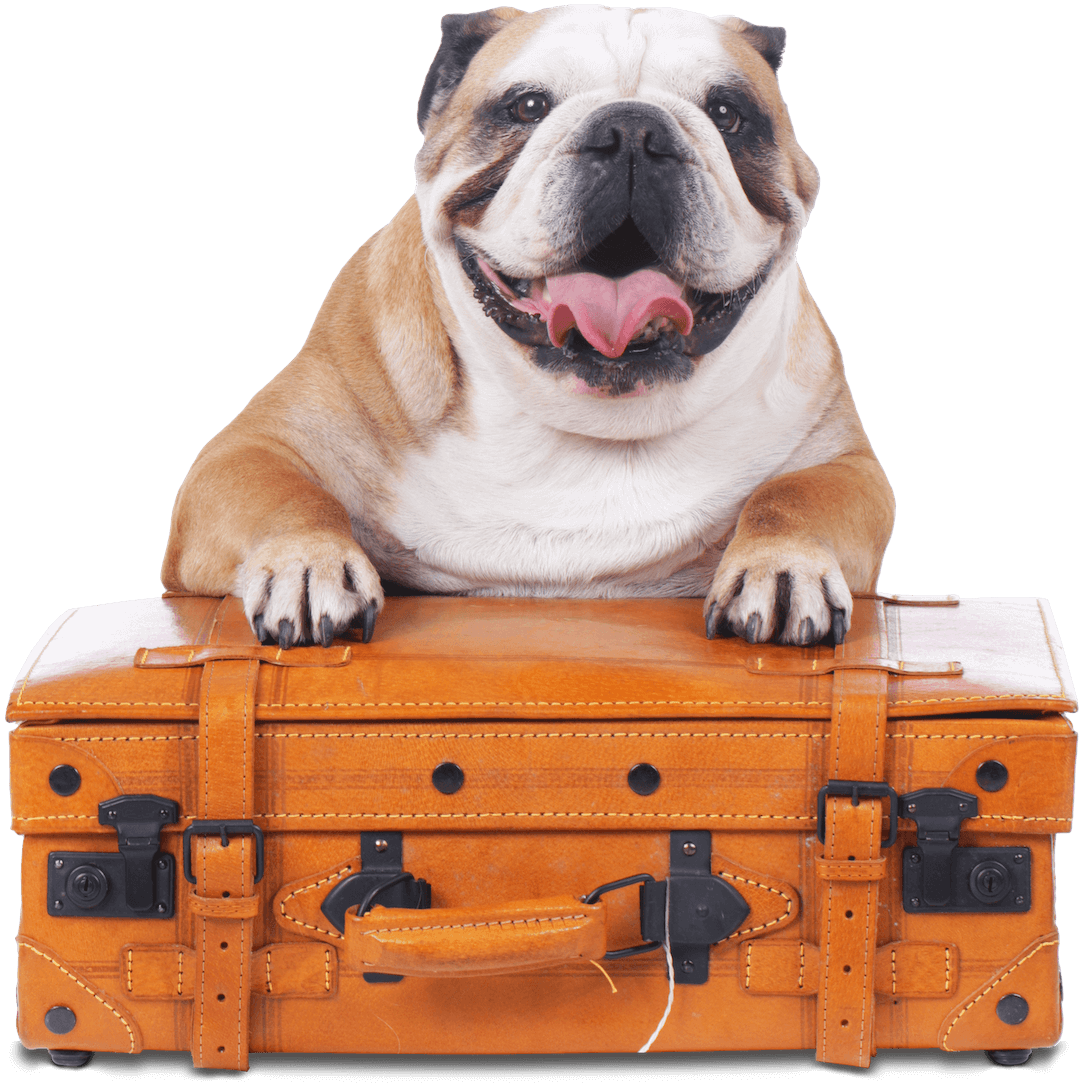When you are preparing for the 4th of July you are probably trying to decide which picnics you are going to attend, what you are going to make, and at which park you are going to set up to get the best view of the fireworks.
You might even be thinking of taking your BFF along with you because he enjoys the park so much! But if you have a pet you know is fearful of loud noises (fireworks, thunderstorm, back fire from a car, etc.) this season might fill you with as much (or more) fear as your pet experiences. It may also mean that instead of spending time with family and friends you stay home to comfort your pet through this difficult time.

Mild Signs of Fear and Anxiety
Lip licking, panting (for no obvious reason), pacing, or being extra clingy.
Moderate to severe signs of fear and anxiety
Trembling, hiding, trying to escape, or other out of character behaviors. Check out more at fearfreehappyhomes.com.
The Doc is In
Approximately 40% of dogs in the United States suffer from some form of Noise Phobia and only ~20% of owners seek care or treatment. The other 20% either do not feel the problem is bad enough to seek care or do not recognize the size of fear, anxiety, and stress from their pets.
It’s important to speak up during your yearly vaccine appointments — this is your time to ask the Veterinarian about anything that concerns you about your pet. We will often ask if there are any specific medical concerns you have. But for some reason, behavior is rarely brought up. If you have noticed changes in behavior you are worried about, please let your veterinarian know.
Treatment depends on the severity of the signs you are seeing at home. It may range from ThunderShirt anti-anxiety vests/jackets, supplements (Composure™ Pro, Zylkene, or Solliquin), and white noise machines. The addition of prescription medications may be required to control all clinical signs and keep your pet as calm as possible. The recommendation may also be a combination of all the above (ThunderShirt, supplements, and medication). Some common medications include Trazadone, Sileo, or Alprazolam/ Lorazepam. Medications can have a wide dosage range and can work slightly differently in each patient. So your if these are medications your pet has not needed in the past you may be asked to preform a test dose with the medication at home on a normal day to ensure your pet responds well to the medication. Remember, on a normal day the effects of the medication (sedation usually) may seem pronounced but when given when your pet is fearful or anxious your pet will over ride some
of the effects of the medication. Discuss any concerns you have during the trial period with your veterinarian ASAP so doses can be changed or different medications can be considered.
No Vet, No Problem
If you find yourself unprepared for the holiday and your veterinarian cannot get you in for an appointment or they are closed, do not despair. There are some things you can do at home to help you pet that do not require an office visit.
- ThunderShirt: this is a shirt that offers mild compression similar to swaddling a baby (see the training video at the end of this post for more details)
- Composure™ from VetriScience®: this is a supplement that works to reduce stress. It is not as strong as a prescription medication but it may help. Try starting this 1-2 days in advance of anticipated stress
- White noise machine
- Leave the lights in the house on
If Fido Gets Out
Summer time is a busy time for the dog warden and the humane societies. Several family members are lost during fireworks or picnics. Be sure that if your pet gets loose you have some way to help him/her get home.
- Identification tags on collar with your phone number
- Microchip with current registration
- Current photos of your pet
- Check the local shelters and post on social media



